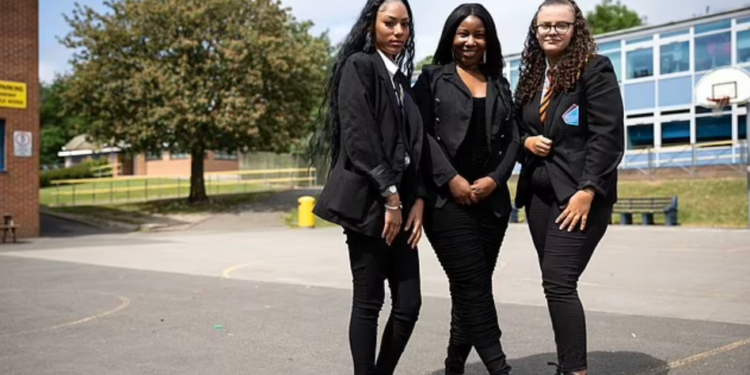Christopher Stevens in the Mail has reviewed Helping Our Teens, a BBC 2 show that he says shows the real price of Covid in the terrible impact of lockdowns on the U.K.’s two million troubled teens.
This is the real price of Covid. Schoolchildren, who were the least likely to suffer serious health problems from coronavirus, are the ones most affected by the legacy of lockdowns. It’s no surprise. Many predicted it, including strenuous voices in the Daily Mail. But the unfairness of it is nothing less than wicked. Children are expected to shrug off the disruptions and carry on as if they hadn’t missed all those months in the classroom. The consequences can be tragic, and are seen with horrid clarity in Helping Our Teens (BBC 2), a school documentary filmed at Beacon Hill Academy at Dudley in the West Midlands. “We are now facing the ripple effect of Covid,” says Headteacher Sukhjot Dhami. “It’s the aftermath. It’s the shock waves.”
Nationwide, nearly two million pupils regularly fail to turn up at least once a fortnight, with an estimated 100,000 missing at least half their lessons. Many of those who do attend have serious problems with behaviour or mental health.
This documentary focused on just two, which meant their school lives were depicted in sometimes repetitive detail.
When we saw Year 10 pupil Jaylilah swear at a teacher and storm out, there was no mistaking this girl needed help. By the time we’d seen it five or six times, it became more difficult to retain sympathy with her – and simply extraordinary to realise how much abuse teachers are now expected to soak up meekly, the way staff at luxury hotels used to be harangued by over-entitled guests.
Jaylilah was a bright child who seemed genuinely unable to understand why she couldn’t tell adults to eff off whenever they annoyed her. “That’s just me being me,” she explained.
Previous generations of teachers might have dismissed her as impossible and abandoned her. She was fortunate to be treated with limitless patience by staff who recognised that her whole future depended on whether they could find ways to tame her.
More distressing was the sight of Taylor, a Year 11 girl who was overwhelmed by waves of depression and anxiety. Maria Gentles, a behaviour expert working with the school, used exercises that amounted to positive thinking. But the real breakthrough came when Taylor started boxing classes, and found a way to release all that pent-up worry.
Tauter editing would have enabled this episode, the first of two, to follow other children’s stories. Taylor and Jaylilah are far from the only pupils suffering the desperate after-effects of school shutdowns. What this programme did make abundantly clear is that, for many teachers, education has been reduced to a sideline. The chief job for many is coping with distressed children.
Worth reading in full.














To join in with the discussion please make a donation to The Daily Sceptic.
Profanity and abuse will be removed and may lead to a permanent ban.